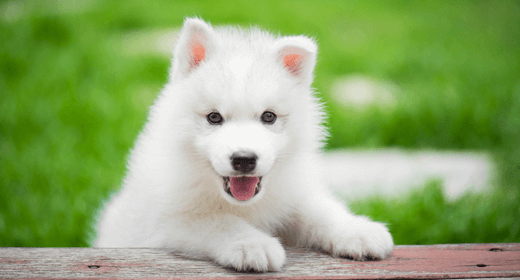

Puppies like human babies need additional love, care, and support in their growing age. The first month of a new puppy is critical as it needs the best healthcare, nutrition, and love to grow into a healthy and cheerful dog. Puppy health becomes the primary responsibility of pet parents during this stage. They must ensure preventive care and medical support alongside providing proper nourishment. To know more about the puppy health checklist, read the following.
Maintaining puppy health is the foremost important duty of every pet parent. Consulting a vet, vaccinating, neutering, and availing regular healthcare check-ups are a few duties of puppy caregivers. Similarly, other puppy preventive care includes:
Medical and preventive care is extremely necessary for puppies. Younger puppies are too small to understand what is good or bad for them. Besides, they are also very curious, playful, and energetic during their initial years. This playful and curious nature can sometimes lead to harmful situations.
Puppies often play and munch on random objects, which can sometimes result in toxication. In fact, accidents are also common in puppies as they lack cognitive skills to measure the consequences of their action. Hence, pet parents should pay more attention to their puppy’s growth and development. Some essential puppy health recommendations are as mentioned:
Apart following puppy health checklist, pet parents also need to ensure their fur baby is provided with other basic facilities for their overall growth and development. Training and socializing are as important as providing the best healthcare.
Besides, potty training and command training establishes hygiene and good behavior in them from a young age. To conclude, puppy health, fitness, and training are some of the most essential aspects for the overall growth and development of puppies.
Observe the puppy daily to look for signs of discomfort, illness, and abnormalities. If you notice a major shift in the puppy’s mood or changes in physical attributions, stool, fur, and other attributes, then consult a vet at the earliest. However, if everything looks and feels normal then you have a healthy puppy.
Soft and shiny fur, clean ear, bright eyes, a clear nose, and a playful mood are some essential signs of a healthy puppy.
Diarrhea, vomiting, itching, whimpering, and loss of energy are some signs of a sick puppy.
Parasites, kennel cough, parvovirus, vomiting, and diarrhea are some common illnesses in puppies.


It is a sight no dog owner wants to see – your beloved pet heaving and uncomfortable, its body racked with nausea. For many, the sound of a dog vomiting sets off alarm bells. But why do dogs vomit, and what causes an upset stomach in dogs? More importantly, when is a dog's upset stomach merely a passing concern, and when does it indicate a more serious issue? Let's delve into these questions to better understand our four-legged friends' health.
Vomiting in dogs is a common occurrence and can be triggered by various factors. This process involves the forceful ejection of the contents within a dog's stomach or upper intestine. This action is often preceded by signs of nausea, such as drooling, licking lips, and swallowing excessively. Sometimes, the cause of vomiting is fairly benign – your dog may have just eaten too quickly or consumed something that didn't agree with its stomach. In other instances, it could be a sign of something more serious, such as ingestion of a toxic substance or a serious illness.
The reasons behind a dog's upset stomach are varied and can range from mild to severe. Upset stomach, medically termed as gastroenteritis, is caused by inflammation or irritation in the stomach or intestines. This can be triggered by a sudden change in diet, food intolerances, ingestion of foreign substances, bacterial or viral infections, and even serious conditions like pancreatitis or kidney failure.
One common mistake dog parents make is confusing vomiting with regurgitation. When a dog regurgitates, it's typically soon after eating and is a passive process, where undigested food comes up without much effort. On the other hand, vomiting involves active abdominal contractions and results in the expulsion of partially digested food mixed with bile.
Any dog owner knows that an upset stomach can leave their furry friend feeling less than their best. Recognizing the signs of an upset stomach can help in providing prompt care and relief for your pet. Typical symptoms include:
More serious signs include:
If your dog appears to be in pain, loses appetite, shows signs of dehydration, has a fever, or exhibits unusual behaviors such as lethargy, restlessness, or shivering, it's a clear indication that something is wrong.
In extreme cases, an upset stomach can result in weight loss and frequent vomiting in dogs, which can be a sign of serious medical conditions such as liver or kidney disease, pancreatitis, or even cancer. It is also important to monitor stress in your dog, as this can often exacerbate or trigger stomach issues.
When it comes to treating a dog's upset stomach, the appropriate treatment will largely depend on the underlying cause. If it's a mild case, such as a dietary change or eating too quickly, simple home remedies might be sufficient. However, if the condition persists or is associated with other serious symptoms, it's essential to consult with a vet.
Some common dog vomiting treatments are:
The best remedies for your dog’s upset stomach are probiotics such as IAMS™ Proactive Health™ Digestive Health Supplement and pumpkin, which can aid digestion. However, it's essential to remember that these are not cures but temporary solutions. If your dog continues to vomit or display signs of an upset stomach, a trip to the vet is necessary.
It's essential to remember that while some instances of dog vomiting or upset stomach can be managed at home, more frequent or severe symptoms necessitate a visit to the vet. Early detection of symptoms can make a significant difference in your dog's health. If your dog vomits multiple times in a day, shows no signs of improvement after 24 hours, or frequently throws up mucus, it's time to take your pet to the vet. The age and overall health of your dog also play a crucial role in this decision.
While home-cooked foods like skinless chicken, boiled potatoes, or rice can be good short-term options for a dog with an upset stomach, they are not nutritionally complete for long-term care. It's also crucial to avoid feeding your dog raw food, which can contain harmful germs like salmonella. Always follow your vet's recommendations to ensure your dog's health and safety.
In addition to following your vet's advice, consider integrating a digestive health supplement into your dog's diet. IAMS™ Proactive Health™ Digestive Health Supplement is a soft, chewable supplement that combines prebiotics and probiotics to regulate your dog's gut health. It contains no artificial color, flavor, preservatives, or fillers, making it a safe and effective choice for enhancing your dog's digestive health.
Understanding the causes, symptoms, and treatments of dog vomiting and upset stomach, and consulting with a vet, when necessary, can help ensure your furry friend's well-being. Remember, their health is in your hands.